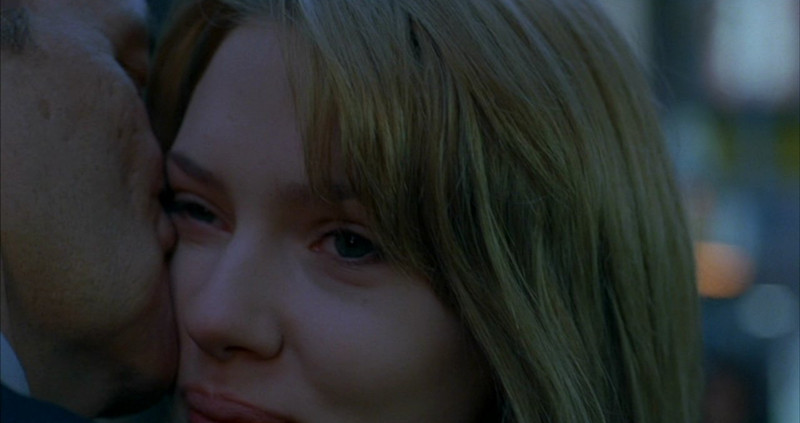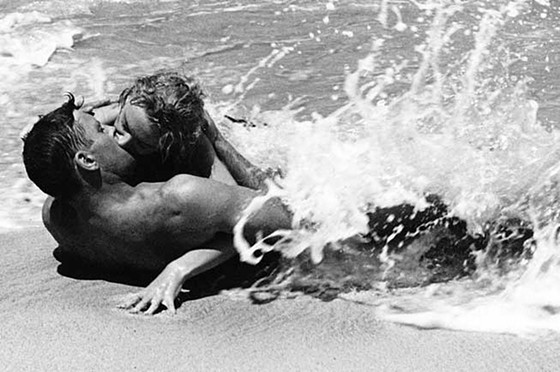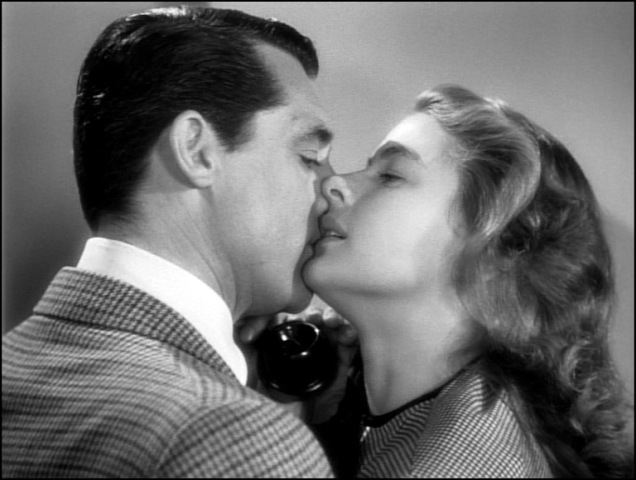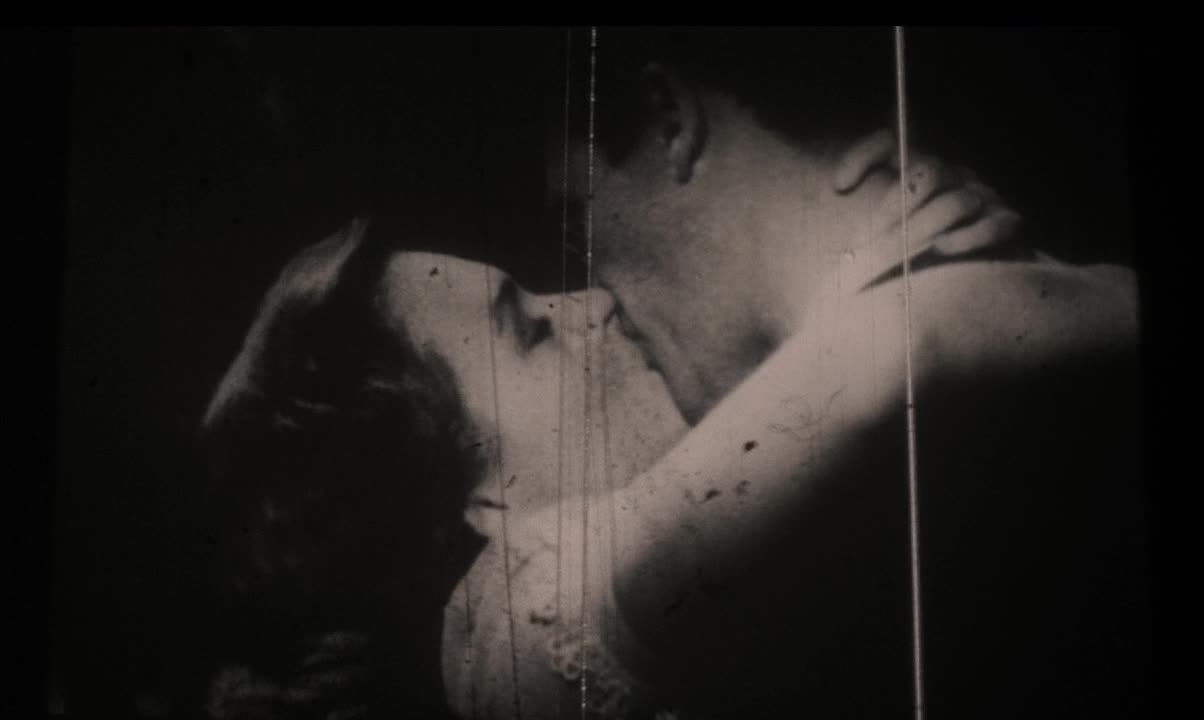5. Lost in Translation (Sofia Coppola, 2003)

Easily the most bittersweet kiss in movie history, the ending of Lost in Translation is one of the most perfect moments in cinema. It is so well-timed, framed and acted, it feels like the entire film was reverse-engineered from that point. Telling the story of two lost souls in Tokyo — featuring career-best performances from Scarlett Johansson and Bill Murray — the story is a quiet, contemplative and melancholy one.
When they find each other, they are both so hollowed out by the disappointment of life, that the entrance of the other gives them a new hope in life, or at least a new memory to treasure. He whispers something in her ear that we cannot hear, setting up an unsolvable mystery that haunts the viewer long after the film is over.
It is also notable for what comes after that brief kiss and whisper in a crowded Tokyo street. Bob goes back into his taxi as the thudding drums of Jesus and Mary Chain’s “Just Like Honey” kicks in. The camera shows him looking content in his car before cutting to show the passing buildings. It is an understated and profound moment that remains undeniably affecting after all these years. Sofia Coppola does not put a foot wrong here.
4. From Here To Eternity (Fred Zinnemann, 1953)

Based on the epic novel by James Jones, From Here To Eternity condenses the huge world of the book into a stark, brilliantly wrought drama. Set in Hawaii during the height of WW2, it follows a group of American soldiers in the run up to the attack on Pearl Harbour. One of these soldiers, First Sergeant Milton Warden (Burt Lancaster) starts an affair with a Captain’s wife (Deborah Kerr), taking place in the cover of darkness as his transgressions would be severely punished.
Their love for each other is best summed up by the iconic kiss that Hollywood can put up as their finest export of the Golden Age. Taking place on the golden waves, it is a kiss that is awash in romanticism and erotic feeling. The waves suggest both the desire both characters have for one another and the inevitable passing of time, making their bittersweet and illicit coupling a brief moment of joy together.
There is a sense of desperation here, knowing that their relationship cannot last. In the book it is clearly stated that they have sex, but due to the Hays Code, the movie could not show that. The limitations placed on this moment is what makes it such an iconic scene.
3. Notorious (Alfred Hitchcock, 1946)

The kiss in this film is notable for the context. The Hays Code, in full effect at the time, stipulated that a kiss could only be three seconds long. Therefore our two characters — played by Cary Grant and Ingrid Bergman — kiss each other for three seconds, let go, then kiss for another three seconds, and so on, lasting a total of two and a half minutes. The result is a remarkably erotic moment and possibly the most romantic scene in Hitchcock’s complete oeuvre. It is a good example where restrictions at the time actually increased the power of a movie’s content.
It is not just a famous kiss because of the historical context however; it is also notable for where it comes in the movie itself. Made at the onset of the Cold War, the paranoid flavour of the movie is what has vaulted it into the pantheon of noir classics. Telling the story about a woman who has to use her sexual wiles as a means to infiltrate a Nazi ring in South America, she does it because she has fallen in love with the man who has recruited her.
When they do finally kiss, there is a strong bittersweet feeling as he finds it hard to love a woman who would sleep with another man. Paradoxical and impossible, this kiss is the perfect embodiment of the film’s themes.
2. The Godfather Part 2 (Francis Ford Coppola, 1974)

The only non-sexually-romantic kiss in this list, it still represents the high point of the extraordinary Godfather movies — a deeply tragic moment that feels necessary for everyone involved. It comes when Michael Corleone (Al Pacino) realises that his brother Fredo (John Cazale) has betrayed him. He walks up to his brother at a party in Cuba and kisses him, telling him: “I know it was you Fredo. You broke my heart.” It is the kiss of death, and Fredo seemingly knows it too.
Nevertheless, Michael will not kill Fredo until his mother has died as a matter of respect. Straight after her funeral, Fredo goes fishing, and Michael watches from afar as he is shot. It shows that the kiss of death, once planted, cannot be undone, and no one is too close to Michael to be spared.
This scene is given an even more tragic dimension when you realise that the actor who played Fredo, John Cazale, only starred in a grand total of 8 movies. This will remain his finest moment in a career that was cut tragically short.
1. Cinema Paradiso (Giuseppe Tornatore, 1988)

This scene isn’t just one kiss. It is a montage of kisses — the perfect expression of the Italian authorities’ repression of true love. Set in and around a cinema, Cinema Paradiso tells the story of a young boy growing up in a small Sicilian village a few years after World War II. He falls in love with the cinema very quickly, and strikes up a relationship with the projectionist. But the films shown at the cinema aren’t complete, often cutting out crucial kissing scenes due to the orders of the local priest.
When the boy, now a film director, unlucky in love, returns to the village for the projectionist’s funeral, he discovers a disposed reel. When he opens it, he watches a montage of all the kisses that were excised from the movies the projectionist put on all those years.
Coming right at the end of the movie, it is an extremely cathartic moment. Both a moment of peace for the main protagonist and a celebration of romance in cinema in general, it is the perfect ending to a great movie. It shows why the kiss is such an important moment in cinema and in life in general, and the greatest expression of love and desire.
In another director’s hands this moment may have been unbelievably corny, but coming at the end of Cinema Paradiso’s epic runtime, this is a great culmination of everything that has come before.